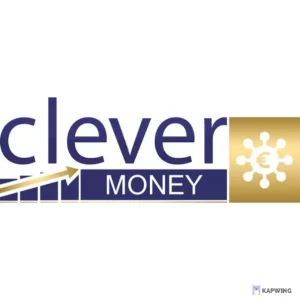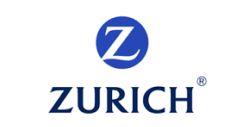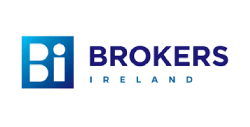
Introduction to Share or Stock Options
Employee Share Ownership Trusts (ESOTs) and Share Options Schemes are two common mechanisms used by companies to encourage employee ownership and incentivise their workforce.
These schemes provide employees with a financial interest in the success of the company, and can help to foster a sense of loyalty and commitment among staff members. Additionally, ESOTs and share options can be beneficial to company owners and directors by providing a tax-efficient way of remunerating employees and retaining key talent.
In this report, we will explore the benefits of ESOTs and share options, and examine their impact on employee loyalty, retention, remuneration, tax relief, and benefits to company owners and directors.
Employee Loyalty
One of the main benefits of ESOTs and share options is that they can help to foster employee loyalty. By giving employees a financial interest in the success of the company, ESOTs and share options can encourage staff members to work harder, be more productive, and stay with the company for longer periods of time. This is particularly important for businesses that rely on the expertise and skills of their employees, as high staff turnover can be disruptive and costly.
Research has shown that companies with employee ownership schemes tend to have lower staff turnover rates than those without such schemes. For example, a study conducted by the Employee Ownership Association (EOA) found that employee-owned businesses in the UK had an average staff turnover rate of just 6%, compared to a national average of 15%. This suggests that ESOTs and share options can be effective in encouraging employee loyalty and reducing staff turnover.
Retention using Share Options
In addition to promoting employee loyalty, ESOTs and share options can also be used to retain key talent. By offering employees a financial stake in the company, businesses can provide an incentive for staff members to stay with the company for longer periods of time. This can be particularly important for businesses that rely on highly skilled or specialized employees, as losing these employees can be detrimental to the success of the company.
ESOTs and share options can also be used to incentivize employees to meet certain performance targets or objectives. For example, a company may offer share options to employees who meet specific sales targets or achieve certain milestones. This can help to motivate employees and encourage them to work harder to achieve these targets, ultimately benefiting the company as a whole.
Remuneration partly via Share Options
ESOTs and share options can also be used as a form of remuneration for employees. By offering employees a financial stake in the company, businesses can provide an additional incentive for staff members to work harder and contribute to the success of the company. This can be particularly effective for businesses that are unable to offer high salaries or bonuses to employees.
Additionally, ESOTs and share options can be used to align the interests of employees with those of the company’s owners and directors. This can help to ensure that all stakeholders are working towards the same goals, ultimately benefiting the company as a whole.
Stock Options for Startups
Let’s say you have a startup and have not become cash-generating yet. You are reliant on Seed/Enterprise Ireland/VC (Tick whatever applies!), rewarding employees with options is not only valuable from the perspective of reduced cash burn, but it also shows potential investors that key staff have “skin in the game”: https://www.independent.ie/irish-news/news/start-ups-seek-revamp-of-under-used-employee-share-scheme-42400029.html
Tax Relief on Share Options
ESOTs and share options can also provide tax relief for both employees and employers. In the UK, for example, share options are generally taxed under the Enterprise Management Incentive (EMI) scheme, which provides favourable tax treatment for qualifying share options. This can help to reduce the tax burden for both employees and employers, making ESOTs and share options an attractive option for many businesses.
Read also: 5 Reasons for Employers to Switch their Company Pension to Master Trusts
Tax on Share Options
There are a few different ways that Tax is calculated on Shares granted, depending on the manner or Trust used. While you will be better off than taking Income in lieu of shares, you may still have some tax to pay. Check the Revenue rules here: https://www.revenue.ie/en/additional-incomes/employment-related-shares/index.aspx
Benefits to Company Owners and Directors
ESOTs and share options can also be beneficial to company owners and directors. By incentivizing employees to work harder and contribute to the success of the company, ESOTs and share options can help to increase the overall value of the business. This can be particularly important for businesses that are considering a sale or seeking investment, as a higher valuation can make the business more attractive to potential buyers or investors.
Share Options

How do they work?
The best way of explaining how a Share Options arrangement would be to discuss an example. Let’s say you are (or are working for) a small startup. Cashflow is critical buy keeping the team in place is also vital.
Instead of issuing a substantial bonus – we will assume €100,000 for this case – we can set up a Share Option Scheme. There are multiple types of Share Schemes so it is important to seek advice from the writer or other professional advice prior to proceeding.
We at Clevermoney have experience in setting up Employee Share Ownership Trusts, to ensure that all legal and tax issues are met.
If a cash bonus is paid, then tax will be payable at 52% (PAYE, PRSI and USC) which is substantial.
If Share options are taken, then shares can be granted to the employee following in an annual basis. Depending on the length of time, and the type of scheme chosen, the employee will have Tax Relief on the proceeds.
Choosing the type of scheme will rely on how the Employer wishes to grant shares – Ordinary Shares or Restricted Shares.
- Ordinary shares mean that the employee gets to take ownership of a portion of the company (which may be beneficial if seeking an IPO or sale)
- Restricted Shares allow the company (or directors) to re-purchase these shares at a point in the future (subject to valuation and Ts and Cs)
There are different levels of Tax Relief granted on the two different schemes, but it is valuable in both cases. Please remember that Capital Gains Tax (CGT)will be payable on any profit made on the shares above the value at which they were granted. CGT is payable currently at 33%.
SUMMARY
Share Options are valuable to both Employees and Employers. They encourage loyalty and staff retention, offer substantial Tax Relief, and can also be used to mitigate a squeeze on cashflow. Most importantly, in this demanding market, it may be the difference between hiring or keeping that member of staff who is capable of making the difference. You can pick up other ideas for Employee Retention here: https://clevermoney.ie/employee-retention/
Let’s talk.
Joe Carroll BComm, FPC, QFA
Practice Director




















